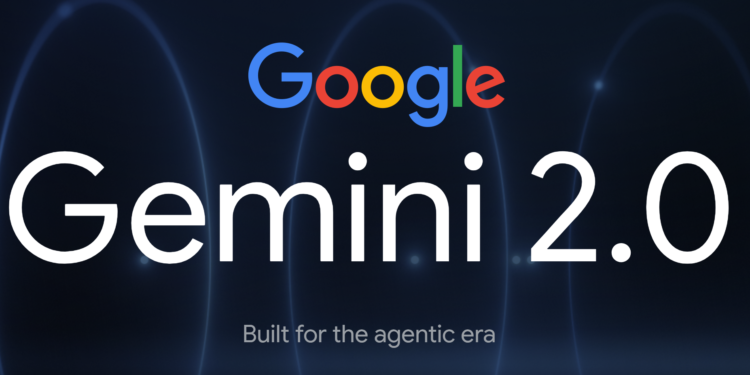Google has officially unveiled Gemini 2.0, the next-generation artificial intelligence model, marking a significant upgrade from its predecessor. The new lineup brings improved performance, enhanced multimodal capabilities, and a refined Pro version, tailored to meet the increasing demands of businesses and developers. With this launch, Google is solidifying its position in the AI race, competing head-to-head with OpenAI’s GPT-4 and other advanced AI models.
Gemini 2.0: What’s New?
Gemini 2.0 is built with a more efficient architecture, promising faster response times, better reasoning, and improved contextual understanding across various tasks. It boasts upgrades in text generation, coding, image recognition, and even voice interactions, making it one of the most versatile AI models on the market.
One of the most anticipated features of Gemini 2.0 is its multimodal efficiency. Unlike previous iterations, which struggled with integrating different data types seamlessly, Gemini 2.0 processes and understands text, images, audio, and video with remarkable accuracy. This makes it an ideal choice for applications in content creation, research, and real-time assistance.
Gemini 2.0 Pro: A Game Changer for Businesses
The Pro version of Gemini 2.0 is designed specifically for enterprise use, offering more robust performance, scalability, and integration capabilities. Google claims that Gemini 2.0 Pro outperforms its predecessor in complex problem-solving, code generation, and business analytics.
With cloud-based optimizations, the Pro model is expected to cater to companies that need high-speed AI responses for customer service, automation, and data analysis. Businesses can integrate it seamlessly into Google’s ecosystem, including Google Cloud, Workspace, and AI-driven APIs, making it easier to deploy and scale AI solutions.
Key Features of Gemini 2.0 Pro
- Enhanced Reasoning & Decision-Making:
- Gemini 2.0 Pro is trained on a more diverse dataset, allowing for stronger logical reasoning, better contextual awareness, and reduced hallucinations compared to its predecessor.
- Superior Multimodal Capabilities:
- The Pro model handles text, audio, and visual data more effectively, enabling better AI-powered assistance in industries such as healthcare, finance, and media.
- Optimized for Coding & Development:
- Developers will benefit from more accurate code suggestions, debugging assistance, and faster script generation, making Gemini 2.0 Pro a direct competitor to GitHub Copilot and ChatGPT-4 Code Interpreter.
- Seamless Enterprise Integration:
- Google has made Gemini 2.0 Pro cloud-native, allowing easy integration with Google Docs, Sheets, Meet, and other productivity tools. Companies can deploy AI models without major infrastructure changes.
Competing with OpenAI and Others
With Gemini 2.0 and the Pro lineup, Google is aiming to catch up with OpenAI’s GPT-4 Turbo and other leading AI models. While OpenAI has dominated in creative and conversational AI, Google’s strength lies in search, real-time data integration, and cloud infrastructure.
This release also sets the stage for competition with Microsoft and Meta, both of which have been developing advanced AI solutions. Google’s advantage, however, is its deep integration with search, advertising, and productivity tools, ensuring that Gemini 2.0 has a direct impact on businesses and everyday users.
Looking Ahead: The Future of Gemini AI
Google has hinted that Gemini 2.5 and Gemini 3.0 are already in development, focusing on even more refined AI capabilities, better ethical AI frameworks, and increased real-time data processing.
As AI adoption grows, the Gemini 2.0 lineup, especially the Pro version, will likely play a key role in shaping AI-driven businesses and personal applications. Whether it’s in automating workflows, assisting developers, or generating creative content, Google’s latest innovation signals an exciting step forward in the AI revolution.
With Gemini 2.0 now rolling out, the question remains: how will it reshape the way we interact with AI in everyday life? Time will tell, but for now, Google is making a bold statement in the AI arena.

















